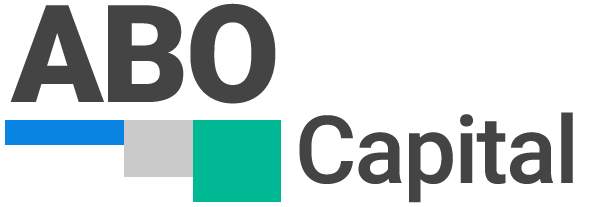Loan Programs > Bank Statement Loans
Credit Requirements for Bank Statement Loans
Qualifying for a loan with bank statements changes some key components of your loan file. In order to qualify for that loan, certain credit thresholds must be met. Here, we’ll outline the credit requirements lenders will look for and how you can strategically plan your bank statement loan around your credit.
What is a bank statement loan?
Traditionally, securing a mortgage requires extensive documentation of your income through W-2s and tax returns. But what if your income structure doesn’t fit neatly into those categories? This is where bank statement loans come in.
A bank statement loan is a non-traditional mortgage option designed for self-employed borrowers or those with complex income sources. Unlike traditional loans, it uses your recent bank statements (typically 12-24 months) to verify your income instead of tax returns.
Here’s how it works: lenders analyze your bank deposits to assess your average monthly income and cash flow. This helps them determine if you can comfortably afford the mortgage payments.
The types of bank statements used can vary depending on the lender. Generally, they’ll look for personal or business bank statements that show deposits from your various income sources. This could include income from freelancing, rental properties, business ventures, or commissions.
By considering your actual deposits, bank statement loans offer a more flexible alternative for qualifying for a mortgage if your tax returns might not accurately reflect your earning power.
How does your credit score affect your loan qualification?
Your credit score plays a significant role in your bank statement loan application, even though tax returns aren’t the primary focus. It serves as an indicator of your financial responsibility and ability to manage debt. Here’s how it works:
-
Credit Score Minimums: There’s a minimum credit score requirement to qualify for a bank statement loan. While the exact score can vary by lender, it typically falls in the mid-600s range.
-
Interest Rates: Your credit score directly impacts the interest rate you’ll receive on your loan. A higher credit score translates to a lower interest rate, saving you money over the life of the loan.
-
Loan Terms: In some cases, your credit score might influence the loan terms offered by a lender. This could include the down payment requirement or the loan amount you qualify for.
Remember: While your credit score is important, it’s not the only factor considered for bank statement loan approval. Lenders will also closely analyze your bank statements to assess your income stability and cash flow.
Considering a Bank Statement Loan?
If you’re self-employed or have a non-traditional income stream, a bank statement loan might be a suitable option for you. However, it’s wise to consult with a qualified mortgage professional to understand your specific credit score requirements and how it can impact your loan terms. They can guide you through the application process and help you secure a loan that aligns with your financial goals.
What credit score do you need for a bank statement loan?
While credit score isn’t the sole factor for bank statement loan approval, it remains an important piece of the puzzle. Here’s a breakdown of what to consider:
-
Minimum Credit Score Requirements: Unlike traditional mortgages with stricter requirements, bank statement loans typically have a lower minimum credit score threshold. This good news for self-employed borrowers whose credit scores might not be as high due to factors like limited credit history. The exact minimum score can vary by lender, but it generally falls in the mid-600s range.
-
Targeting a Higher Score is Always Beneficial: While you might qualify with a mid-600s score, aiming for a higher credit score can significantly benefit you. A stronger score translates to:
- Lower Interest Rates: This can save you thousands of dollars over the life of your loan.
- Favorable Loan Terms: Lenders might offer you a lower down payment requirement or a higher loan amount with a better credit score.
Here’s the takeaway: While a mid-600s score can get you in the door for a bank statement loan, working on improving your credit score before applying can unlock even better loan terms and save you money in the long run.
Not Sure Where Your Credit Score Stands?
Many banks and credit card companies offer free credit score monitoring. You can also access a free credit report once a year from each of the three major credit bureaus (https://www.annualcreditreport.com/index.action) Knowing your credit score is the first step to taking control of your financial future.
Other Key Requirements to Qualify for a Bank Statement Loan
While credit score is a factor, securing a bank statement loan involves fulfilling a few other key requirements. Let’s explore them:
-
Strong Income and Debt-to-Income Ratio (DTI): Lenders assess your bank statements to analyze your average monthly income. This helps them determine if you can comfortably afford the mortgage payments. They’ll also look at your recurring debts (credit card payments, car loans, etc.) to calculate your DTI ratio. A healthy DTI (generally below 50%) demonstrates your ability to manage existing financial obligations alongside your mortgage payment.
-
Stable Income History: Bank statement loans favor borrowers with a demonstrably stable income stream. Lenders typically require 12-24 months of consistent deposits in your bank statements to verify income stability. Large fluctuations or gaps in income can raise red flags.
-
Down Payment: While some lenders offer bank statement loans with lower down payments (around 10%), a higher down payment (closer to 20%) can strengthen your application. A larger down payment reduces the loan amount you need to borrow, making you a less risky proposition for the lender and potentially qualifying you for a more favorable interest rate.
-
Property Type: Not all property types qualify for bank statement loans. While residential properties are generally accepted, some lenders might have restrictions on investment properties or fixer-uppers.
-
Complete Application Package: In addition to bank statements, you’ll likely need to provide basic documentation like proof of identity, tax returns (in some cases), and verification of assets.
We’ve qualified thousands of bank statement loans
Reach out below to talk to our team of experts about leveraging your bank statement sto qualify for a home loan.
Learn More About Non-QM Loans
Our Guide to Qualifying for a Bank Statement Mortgage
Dreaming of homeownership but worried about your non-traditional income? Learn about bank statement loans and how they cater to borrowers with 1099, contract, freelance, or gig work. Understand the key differences between traditional and non-QM loans, and find out if a bank statement loan is right for you.
Credit Requirements for Bank Statement Loans
Considering a bank statement loan? Learn about the credit score requirements, income verification process, and other key factors that lenders consider. Find out how to optimize your financial situation to increase your chances of qualifying for this alternative mortgage option.
How to Prepare for a Non-QM Loan
Qualify for a home purchase without the traditional documents and income verification. The team at Abo Capital is experienced in qualifying buyers with unique incomes, business, and documentation needs. Learn how we can help you strategize with a unique, Non-QM mortgage product.



